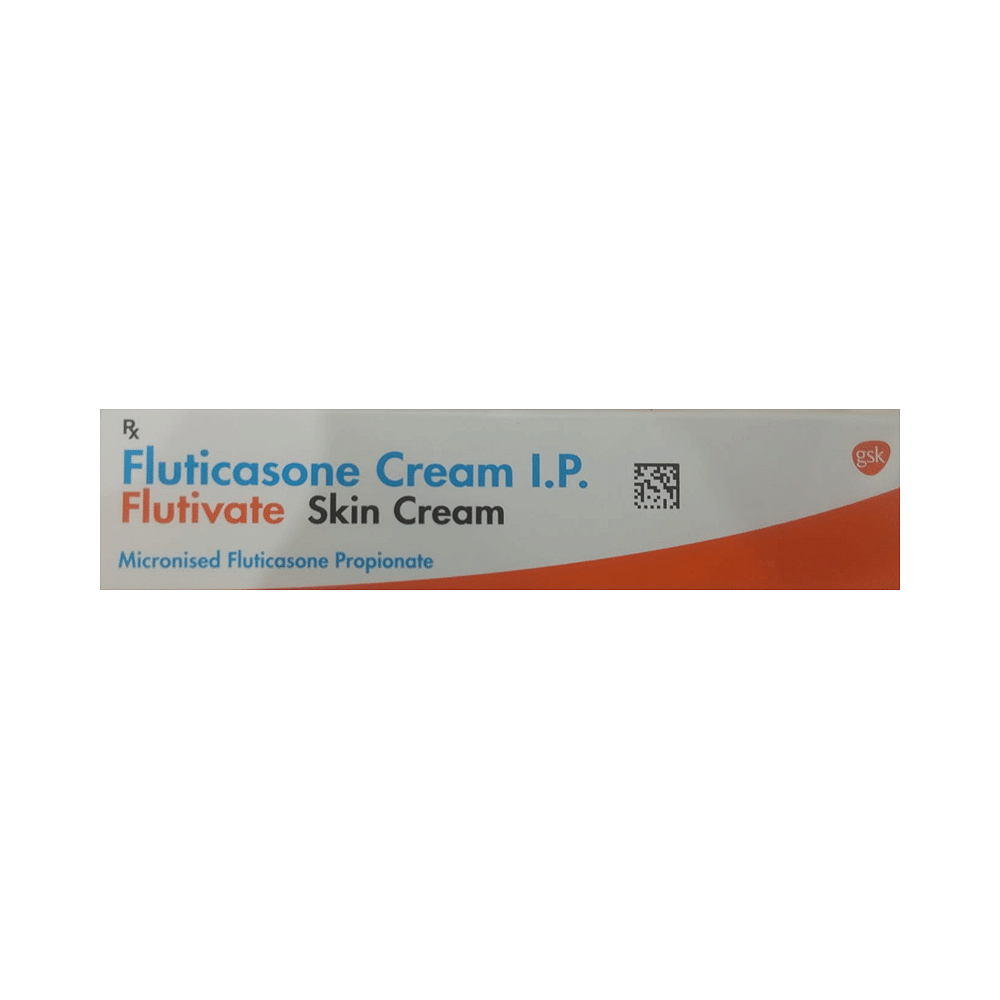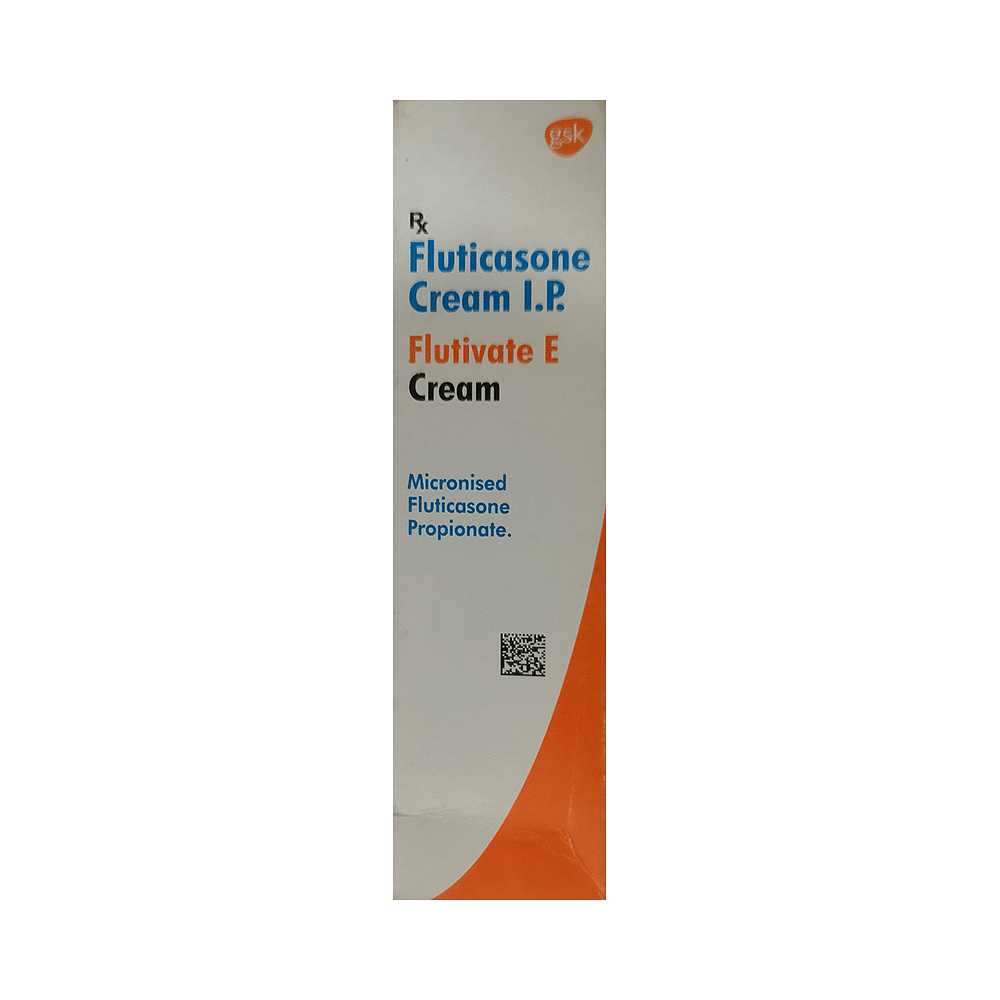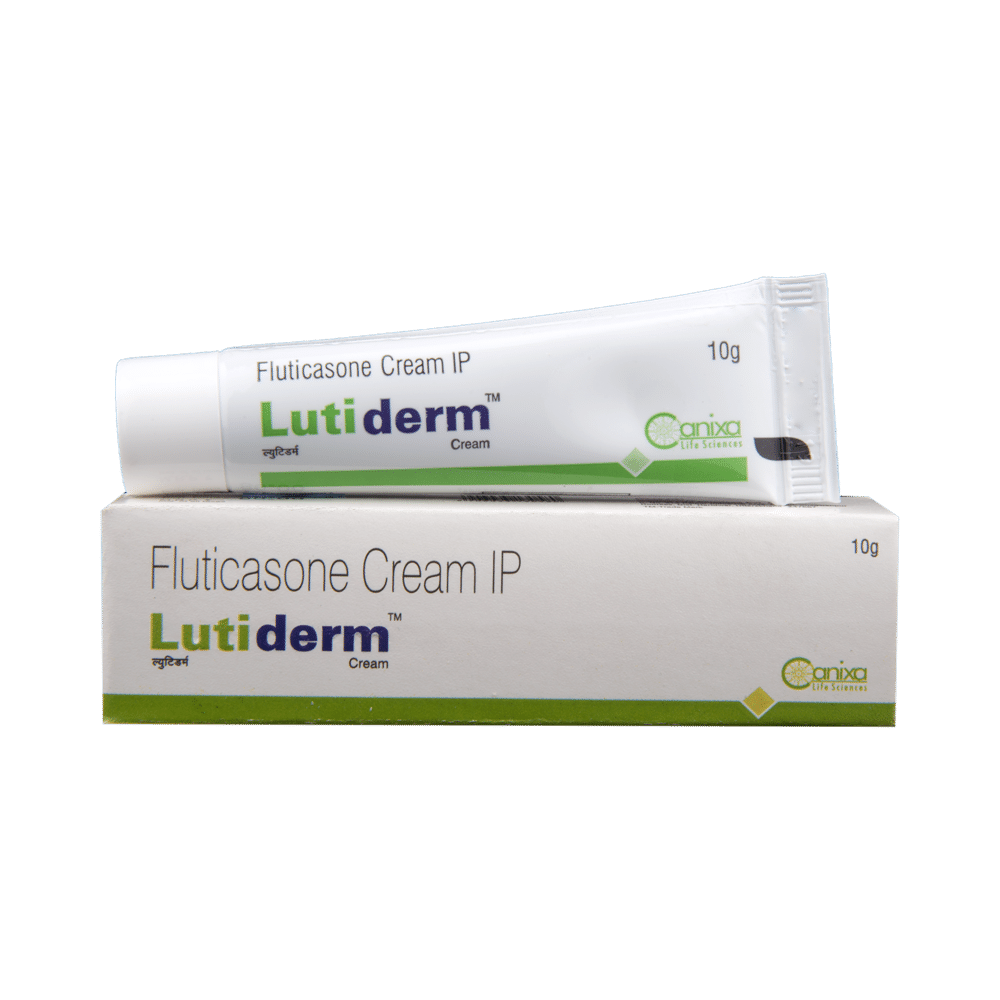
Cutifute Cream
Manufacturer
Remedial Healthcare
Salt Composition
Fluticasone Propionate (0.05% w/w)
Key Information
Short Description
Cutifute Cream is a steroid medicine used to treat skin conditions with inflammation and itching such as eczema, dermatitis, and psoriasis.
Dosage Form
Cream
Introduction
Cutifute Cream is only meant for external use and should be used as advised by your doctor. You should normally wash and dry the affected area before applying a thin layer of the medicine. Avoid any contact with your eyes, nose, or mouth. Rinse it off with plenty of water in case of accidental contact. Avoid covering the treated area with airtight dressings such as bandages unless directed by a doctor. Using of the medicine may cause itching or burning sensation, irritation, redness, and swelling at the site of application. These side effects are temporary and usually go away with time. However, if they persist or worsen, let your doctor know. Pregnant and breastfeeding mothers should consult their doctors before using this medicine. It should not be used in children below 3 months of age.
Directions for Use
This medicine is for external use only. Use it in the dose and duration as advised by your doctor. Check the label for directions before use. Clean and dry the affected area and apply the cream. Wash your hands after applying unless hands are the affected area.
Safety Information
Side Effects
No common side effects listed.
Breastfeeding Warning
Cutifute Cream is probably safe to use during breastfeeding. Limited human data suggests that the drug does not represent any significant risk to the baby. However, avoid applying Cutifute Cream on the breasts to avoid accidental ingestion by the infant.
Pregnancy Warning
Cutifute Cream may be unsafe to use during pregnancy. Although there are limited studies in humans, animal studies have shown harmful effects on the developing baby. Your doctor will weigh the benefits and any potential risks before prescribing it to you. Please consult your doctor.
Interacting Medicines
Acarbose Amlodipine Aprepitant Atazanavir
How it works
Cutifute Cream is a steroid medicine. It works by blocking the production of certain chemical messengers that make the skin red, swollen and itchy due to skin conditions such as atopic eczema, allergic contact dermatitis, and psoriasis.
Quick Tips
You have been prescribed Cutifute Cream for treating itchy red rashes and skin irritation associated with skin conditions such as atopic eczema, allergic contact dermatitis, and psoriasis among others. Don't use it more often or for longer than advised by your doctor. Don't apply it to broken or infected areas of skin, face, eyes, or eyelids. Don't cover the area being treated with airtight dressings such as bandages unless directed by a doctor as this may increase the risk of side effects. If you think the area of skin you are treating has become infected you should stop using Cutifute Cream and consult your doctor. Consult your doctor if your skin condition has not improved after two weeks of treatment.
Related Medicines

Q-Sone 0.05% Cream

Flutivate Cream

Flutivate E Cream

Futiease 0.5% Cream

Fluticare Cream

Viaflut Cream

Flutisone Cream

Lutiderm Cream

Fusicone Cream

Ivason 0.05% Cream
Frequently asked questions
What is Cutifute Cream? What is it used for?
Cutifute Cream belongs to a class of medicines called corticosteroids. It is used to treat various allergic skin conditions, such as eczema and atopic dermatitis. It effectively reduces symptoms associated with these conditions including swelling, itching, and redness.
How does Cutifute Cream work?
Cutifute Cream works by reducing inflammation caused by allergies. It decreases this inflammation by blocking the release of certain natural substances that cause allergic symptoms such as swelling, redness, and pain.
How long does it take for Cutifute Cream to start working?
The time required for Cutifute Cream to show its effects may vary from person to person. It usually starts providing relief within 8 hours of starting the medication. However, noticeable benefits may appear after several days of regular use.
Is Cutifute Cream good for burns?
No, Cutifute Cream should never be applied to areas with burns, cuts, or scrapes. If Cutifute Cream accidentally comes into contact with such areas, rinse the affected area thoroughly with water. It is crucial to use this medication only as directed by your doctor to avoid potential adverse effects and worsening of the condition.
How to use Cutifute Cream?
Before using Cutifute Cream, clean and dry the affected area. Gently and thoroughly massage it into the skin. Be careful not to get the medication in your eyes or mouth. If Cutifute Cream gets into your eyes accidentally, wash them thoroughly with water and contact your doctor if your eyes are irritated.
What precautions do I need to take while using Cutifute Cream?
Be careful not to get Cutifute Cream into your eyes or mouth. If you happen to get it in your eyes, rinse with plenty of water immediately and contact your doctor. Do not use Cutifute Cream if you are allergic to it or any of its ingredients. Inform your doctor if you notice any allergic reactions during the first use. Inform your doctor if you are taking any regular medications to prevent potential allergic reactions with other drugs.


